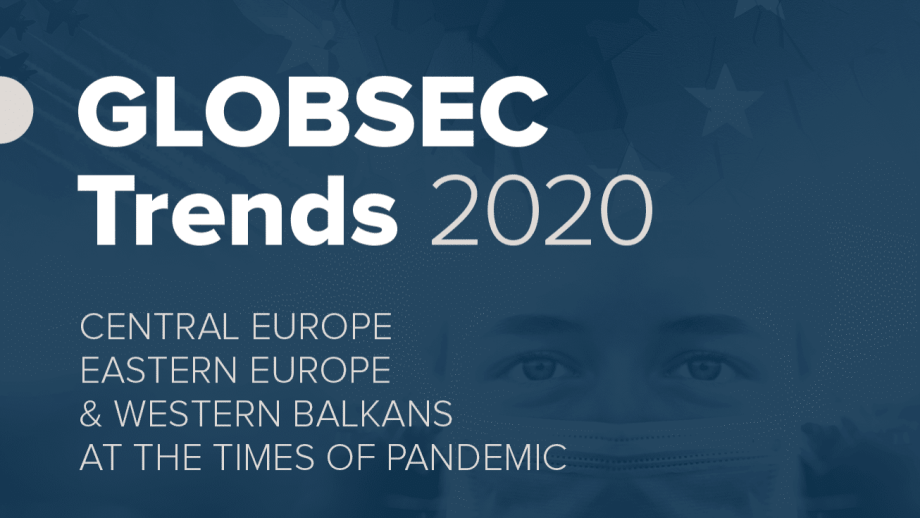GLOBSEC Trends 2020: Central Europe, Eastern Europe and Western Balkans at the Times of Pandemic

2020 has been enveloped by the ongoing COVID-19 pandemic. Its profound global impact is likely to be the subject of research for many years to come. Against this backdrop, it is our pleasure to present you a fifth edition of our flagship report - GLOBSEC Trends 2020 – focusing on current perceptions in the Central and Eastern European and Western Balkan regions towards a range of political issues.
The report provides answers to urgent public health concerns including the willingness of societies to get vaccinated against COVID-19 and proneness to believing COVID-19 related conspiracy theories. We also scrutinise how the European Union, NATO and major powers including the United States, China and Russia are perceived in the region and whether their standing has improved or suffered setbacks in the wake of the pandemic.
And as disinformation campaigns and information chaos continue to ravage our information environment, we assessed the prevalence of different polarising narratives and their impact on attitudes towards liberal democracy and international cooperation. While both democracy and international cooperation have suffered setbacks in recent years, public perceptions from the nine surveyed countries suggest they have not been vanquished yet.
While the report can be found below, these are our key findings:
COVID-19 vaccination
Trust in public authorities corresponds with people’s willingness to be vaccinated against COVID-19. Only 37% of respondents, on average, are inclined to get a COVID-19 vaccine but this figure rises to 53% among those who trust their public authorities.
EU representing a more promising future
A total of 71% of respondents believe that EU membership will lead to better life prospects for future generations and a majority of respondents in seven of nine countries do not think that the EU is destroying their country’s traditional values and identity. That said, the notion that an “EU dictate” is at play has gained widespread traction.
Pro-Russian / Russia-originating narratives going viral
At 72%, the proportion of those who support NATO membership in the region is robust. Nearly 4 in 10 people living in NATO member countries in the region, nonetheless, believe that NATO is an aggressive tool of the US and/or that NATO is provoking Russia by establishing military bases in the country’s vicinity.
Democratic paradox
The vast majority of people in the region agree that democracy, as a system based on equality, human rights, fundamental freedoms and rule of law, is good for their country (78%). However, a considerable share of respondents perceive democracy to be a threat when it is described as liberal (41%).
China and Russia not seen as threats
The perception that China and Russia are threats is currently low, declining over the past year. In numerous surveyed countries, in fact, respondents rather tended to perceive Russia and/or China as key strategic partners for their respective countries.



